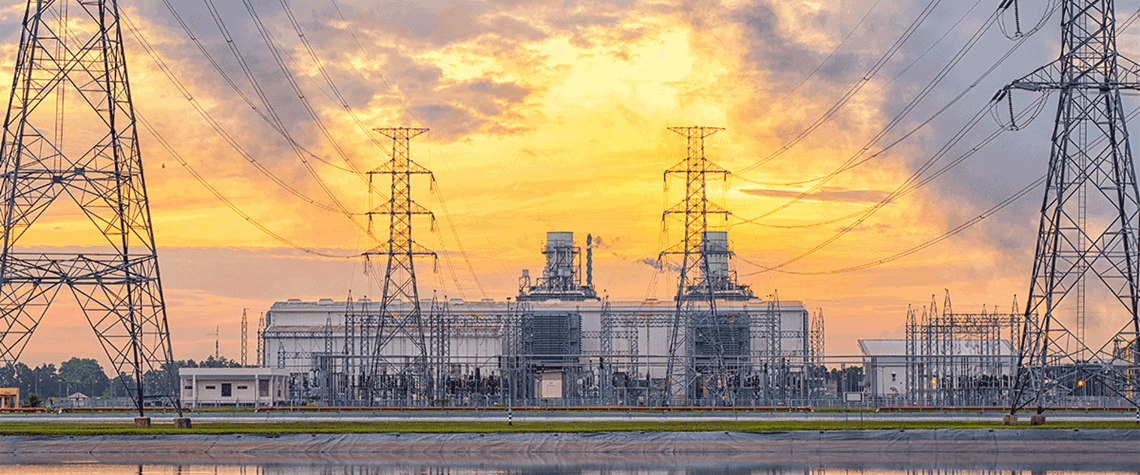The past 12 months have seen positive developments in Asia’s use of natural gas to underpin energy security and energy transition. The Philippines, Vietnam and Hong Kong have taken delivery of first LNG shipments, with Vietnam charting an ambitious pathway to emissions reductions through gas use. India and China continue to grow the use of gas in their energy systems, and Indonesia and Malaysia have identified gas as pivotal to decarbonisation.
Meanwhile, traditional consumers of gas—Japan, South Korea, Singapore, Thailand and Taiwan—continue to benefit from its reliability as they map out low-emissions futures.
However, if you look beyond the past year back to Russia’s invasion of Ukraine in 2022, challenges in global markets become more apparent. When Europe rushed to replace Russian gas supply, it started importing significant quantities of LNG. Supply limitations saw prices rise sharply and emerging nations, including in Asia, could not afford gas. Prices have since declined but spot prices remain elevated relative to historic levels and further shocks—industrial action, significant technical supply issues or a cold European winter—could send short-term market prices climbing again.
The unfortunate reality is that when emerging economies can’t afford gas they go back to coal as a cheap and available fuel. Global coal consumption reached all-time highs in the past two years.
If the world is to achieve the climate targets of the Paris Agreement, this cannot continue. Let’s keep in mind that gas produces up to 60% less emissions than coal in electricity generation. In an Asian context, it’s estimated that if just 20% of the region’s coal-fired power stations switched to gas, CO₂ emissions reductions would be 680mt/yr.
It’s an equation the Asia Natural Gas and Energy Association (ANGEA) and its members are working to address. The world needs enough gas that all countries in Asia—developed and emerging—can access sufficient supply at affordable prices to meet needs during energy transition.
The next five years offer cause for optimism. New export facilities in the US and Canada and Qatar’s North Field Expansion Project will alleviate some tightness in global supply. Australia, with the right policies, could maintain its role as a reliable supplier of LNG, helping bring energy security while leading Asia-Pacific decarbonisation efforts through scale-up of CCS.
However, we must acknowledge the immense volumes of coal that need to be displaced in decades to come. Between now and 2050, Asia’s gross domestic product is expected to quadruple and energy demand more than double. Much of the demand will come from countries currently reliant on coal: Indonesia, the Philippines, Vietnam and India.
The Rystad Energy study into energy security in Southeast Asia, commissioned by ANGEA and the American Petroleum Institute, identified gas as the energy source best suited to support credible energy transition in terms of acceptability, availability and affordability. Switching out coal-fired power for gas can strike a balance between providing energy for growth and progress on emission reductions, while ensuring baseload power that counters the intermittency of renewables.
However, the study also highlighted potential barriers to achieving necessary supply, including policy settings in gas-producing nations not supporting future projects and the reticence of some financial institutions to fund any kind of hydrocarbon activity, despite the clear advantages of gas. Commitments to flexible and long-term contracts are other challenges to progressing LNG-to-power projects in emerging Asia.
A key aspect of the work ANGEA undertakes around the world is raising awareness at the highest level about the positive impact global LNG production currently has and will continue to have in Asia. We’re also collaborating closely with countries in Asia as they seek to grow the role of gas in energy systems. LNG import and storage facilities take years to plan and build and countries must make decisions now rather than waiting until they are needed.
There are no perfect energy solutions and we recognise the emissions profile of gas also requires management. Gas production and use is becoming more sustainable, with a strong focus on identifying and addressing methane emissions and producing LNG with the smallest possible carbon footprint. In the future that footprint will become much smaller still, through at-scale implementation of transboundary CCS via a regional carbon economy. It’s likely we’ll see CCS employed to reduce emissions right along the gas value chain, in production, liquefication, transport and consumption.
ANGEA and its members are committed to partnering with governments and industries throughout Asia to ensure CCS realises its undoubted potential, including creating new economic opportunities. CCS technology has been effectively employed in oil and gas operations for decades but there is work to be done to ensure it is cost-effective at the required scale and to establish regulatory and policy environments to support region-wide rollout.
ANGEA is excited to be leading a ground-breaking, multi-year programme to build understanding and consensus in the Asia-Pacific region for a cross-border carbon-reduction accreditation system. The programme will seek to harmonise standards, policies and regulation covering the accreditation or certification of CO₂ emission reductions, with a strong focus on the requirement for cross-border carbon trade. We hope our study will facilitate significant future investment in CCS and be another milestone towards Asian nations unlocking the full benefits of natural gas and avoiding increased use of coal.
Paul Everingham is the inaugural CEO of the Asia Natural Gas and Energy Association (ANGEA), which works with governments, society and industry throughout Asia to build effective and integrated energy policies that meet each country’s climate objectives.
This article was published as part of PE Outlook 2024, which is available for subscribers here. Non-subscribers can purchase a copy of the digital edition here.









Comments